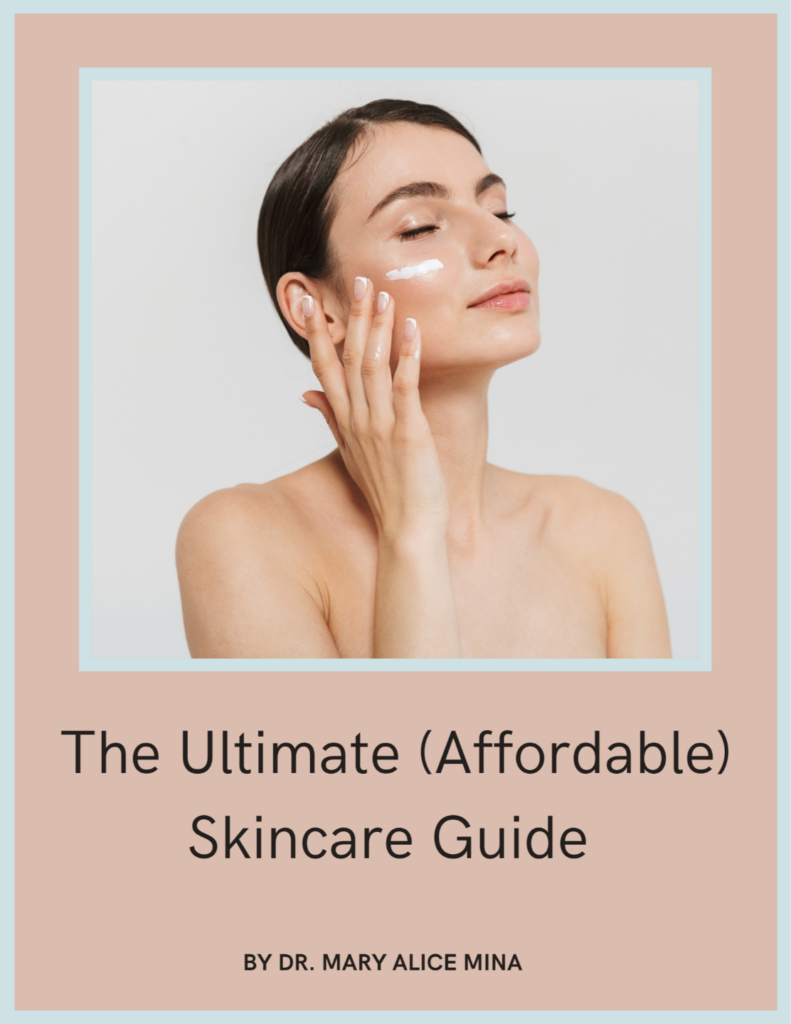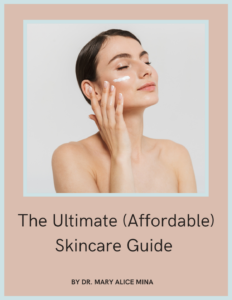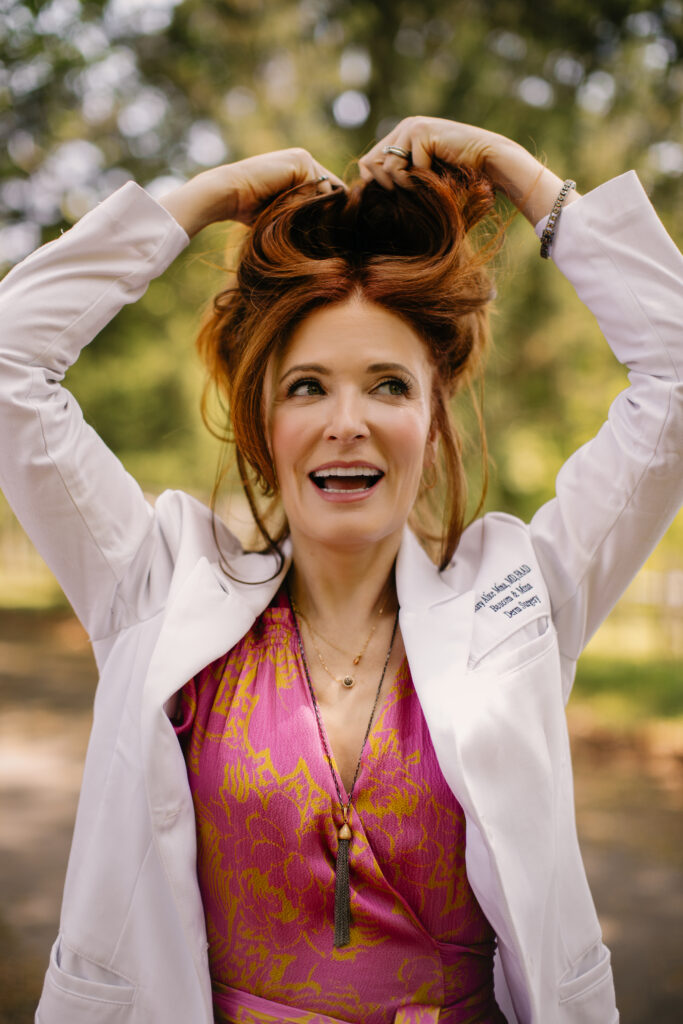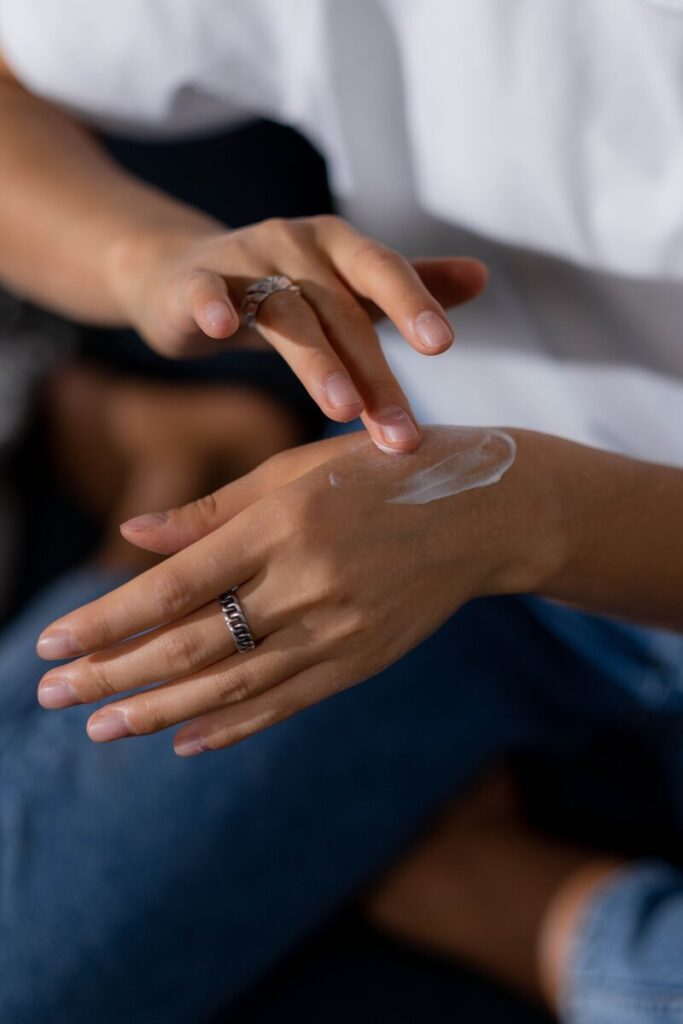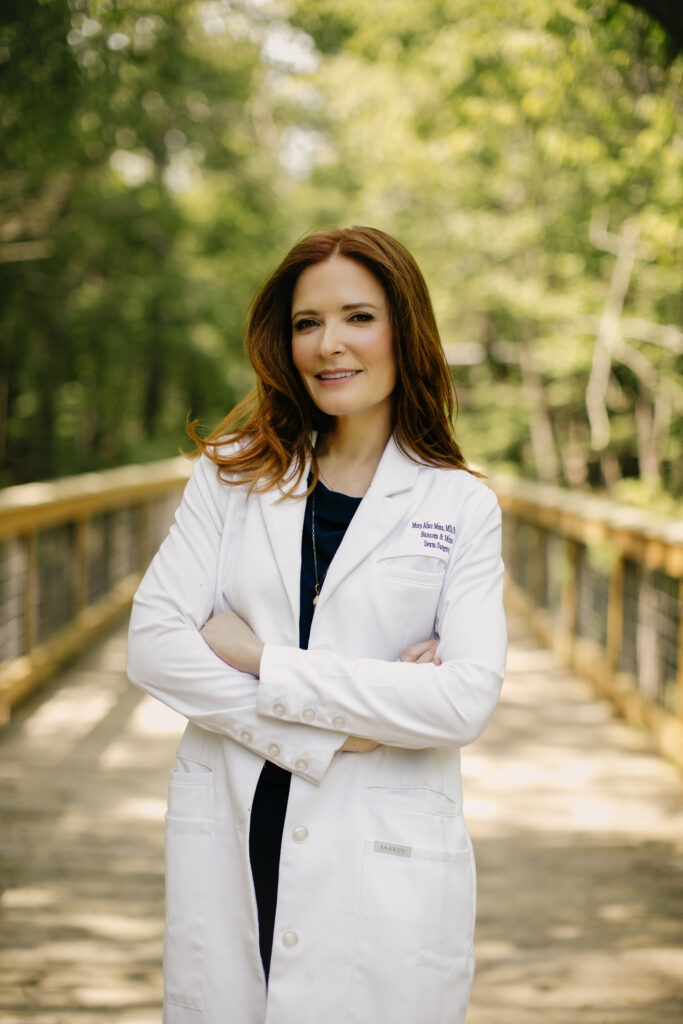Yes, dermatologists are OBSESSED with sunscreen and here’s why:
Sunscreen worn every day (yes, EVERY DAY) is a great way to protect your skin from harmful ultraviolet (UV) radiation from the sun.
Some people think of sunscreen as just something you put on for a day at the beach or when you’ll be outside for prolonged periods of time, but you are actually exposed to UV rays even on cloudy days and when indoors if you are near a window or glass. That’s because the sun emits 2 types of radiation that can reach our skin, UVA and UVB. UVA rays are long wavelengths and can actually penetrate glass and clouds; UVB rays are the shorter wavelengths.
Just like brushing your teeth, you should wear sunscreen every day for maximum sun protection. Then it becomes a habit and something you’re more likely to stick with and not forget. You’ll want to apply sunscreen to any and all of your skin that’s exposed. For me, as I’m inside seeing patients every day, I put my sunscreen on my face and neck but forgo the arms until I leave work.
Wearing sunscreen every day can not only prevent skin cancers, but it can help prevent signs of aging that are accelerated with sun exposure.
So which sunscreen should you choose? Here are my tips:
- Look for a sunscreen with an SPF of 30 or higher. An SPF of 30 will protect you from 97% of the sun’s UV radiation.
By the way, every wonder what SPF stands for? SPF stands for ‘sun protective factor’ and it’s a calculation based on the dose of radiation required to cause reddening on the skin with sunscreen vs without. SPF is only calculated with UVB rays (more on this below).
- Higher SPF values over 30 only provide minimal additional benefit so may not be necessary.
- Be sure to look for a sunscreen with ‘broad spectrum coverage.’ This is because UVA rays are longer wavelengths and not tested with SPF ratings.
- Physical sun screens act like a shield to block the sun and include ingredients like zinc oxide or titanium dioxide.
Pros: These block UVA and UVB rays, not absorbed by the skin and good for babies.
Cons: Can leave a whitish residue with some formulations.
- Chemical sunscreens act like a sponge and absorb UV rays and turn them into safe wavelengths. Examples include oxybenxzone, avobenzone, and octinoxate.
Pros: Blends into skin well.
Cons: Absorbed into the bloodstream, some controversy around certain chemical sunscreen agents (see below).
- The BEST sunscreen is one you will actually wear! You don’t have to spend a lot of money.
- You can wear one sunscreen for your entire body and face if you like.
- No sunscreen is completely water repellent so be sure to reapply every 2-4 hours or after sweating/swimming.
Pro tip: Choose a ‘water resistant’ sunscreen if you’ll be swimming or exercising to help prevent the product from running into your eyes and burning.
Some recent controversies surrounding sunscreen include a study that showed higher than FDA recommended doses of certain chemical sunscreens in the blood stream. This study did not determine if this was unsafe or not, it merely noted that these ingredients were absorbed and at higher levels than recommended. Further studies are ongoing to determine if this is safe or not, and if there are any consequences to this.
There have also been some reports of the coral reef being damaged by certain chemical sunscreens (oxybenzone and octinoxate). While this has not been completely correlated and borne out as fact, Hawaii and the city of Key West have banned these ingredients until further research can be undertaken.
While absorption of sunscreen by the body and coral reef damage may seem shocking and concerning, further research is needed to validate and completely understand these findings, and if there is any correlation.
What we do know clearly is that NOT wearing sunscreen can cause sun damage, skin cancer, and premature aging. So rather than swearing off all sunscreens, if you are concerned about these reports, choosing a physical sunscreen with zinc oxide or titanium dioxide, as well as the use of sun protective clothing, will be a good option for you.
Be sure to check out my podcast episode #5, ‘My Sunscreen 411’ for a closer look at sunscreens.

